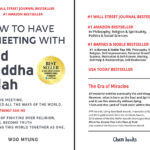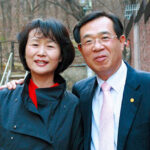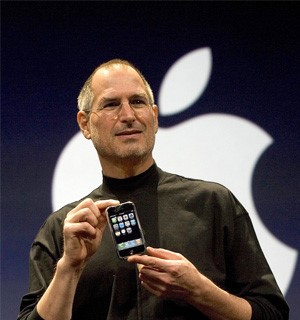
Steve Jobs | 1955~2011
The 21st century icon of revolution
He was the best in combining ideas, in art, and in skills to develop a new future. The ipod, which changed the way of listening to and consuming music; the iphone which converted the phone into a ‘machine’ for music, photos, videos, e-mail, and internet; the App Store which developed business for new contents; the ipad which launched a new world of tablet PCs and provided the platform of the digital newspaper, magazines, books and movies….
Jobs gave a huge influence to the people, not by making what people wanted but by making what they will want. He read their future desires and opened up a new digital world.
That person who was the symbol of high-tech, Steve Jobs, did meditation.
During the initial stages of the Apple company, even in his busy life time, he always meditated an hour every morning before he went to work.
Why did he meditate?
What did he find through meditation?
Just a moment here! What do we mean by ‘Meditation’?
Simply, according to the dictionary for psychology terms, transcendence is returning to the undistorted pure mind status by escaping from the mind of pain, and to practice that is meditation. However, there are many kinds of meditations and accordingly, there are different methods. The meditation that Steve Jobs had done is the oriental Zen meditation. Zen is the one of Buddhist performances. It is the performance of mind concentration where you can achieve the ultimate spiritual enlightenment through controlling and concentrating the mind. Zen Buddhism uses Zen as its performance method, and it says that you can enter the Nirvana through seated meditation.
Reference: Encyclopedia of Korean Culture / Basic Dictionary of Ethic Terms for Highschool Students / Encyclopedia of Religions
1. ‘How come I got abandoned by my biological parents?’
After recognizing that he was adopted, he felt lost and that made him seek more into spirituality and enlightenment.
Steve Jobs was born in 1955 and adopted by Paul and Clara Jobs.
He had a sensitive personality and when he was sixteen, he agonized about his identity.
After he recognized that he was abandoned by his biological parents and adopted, he wondered about it even more.
In his youth life in the 1960’s, San Francisco was the center of Hippie and Zen culture. Zen Buddhism was getting popular among the progressive elites and young people. Jobs was seeking his true identity so he naturally fell into the Hippie spirit and culture.
In 1972 after he went to college, he started reading many books on spirituality and enlightenment. He meditated with his friends in the meditation room which was decorated with Indian drawings, candles, incense and cushions for meditation.
Steve Jobs believed there must be something supernatural beyond the daily life, and he tried to find that something.
“I tried to fill up the hole in my heart.”
His college friend Kottke explains Jobs’ reason why he was endlessly seeking answers.

From the Movie “Jobs” in 2013 directed by Joshua Michael Stern casting Ashton Kutcher
2. “I want to know who I am through enlightenment”
Steve Jobs started Zen meditation in earnest after a 7-month journey in India.
In 1974, Jobs dropped out of college and went on a journey to India for 7 months. His journey was not superficial but rather the true effort to get the right answer. He said around those years he was seized by the thought that he wanted to achieve enlightenment to know the true self and to adjust to it. So since he came back from the Indian journey, he started Zen seriously in a temple in LA.
And from there he met his spiritual adviser Kobun Chino. After that, he fell into Zen meditation deeply, and it became a part of his life. His interest in the Eastern cultures, Zen Buddhism, and enlightenment was not a superficial act of young adulthood. He accepted it with great passion and throughout his whole life he tried to perform the principles of those Eastern ideas, and finally he let it root into his spirit deeply. After a long time later, he recalled how effective the Indian journey was to his life.
“When I came back from India, I found out the craziness of the Western world and the limitation of rational thoughts. If we sit still and take a look into our inner mind, we can recognize that our mind is anxious and scatter brained. The more you try to suppress it, the noisier it gets. But as time goes by, the anxious wave of the mind gets quieter and,
There becomes a space to be able to recognize something. At that very moment, the intuition kicks in and then we can see the world clearer and be loyal to the moment. We can achieve the peace in our mind and feel the infinite expansion of the present. Also, we have brighter eyes to see more than before.
This is the cultivation of the mind which we have to continuously practice. After coming back from India, the Zen affects me deep into my life.”
The story from <Steve Jobs> (Walter Isaacson) explains why he did meditation.
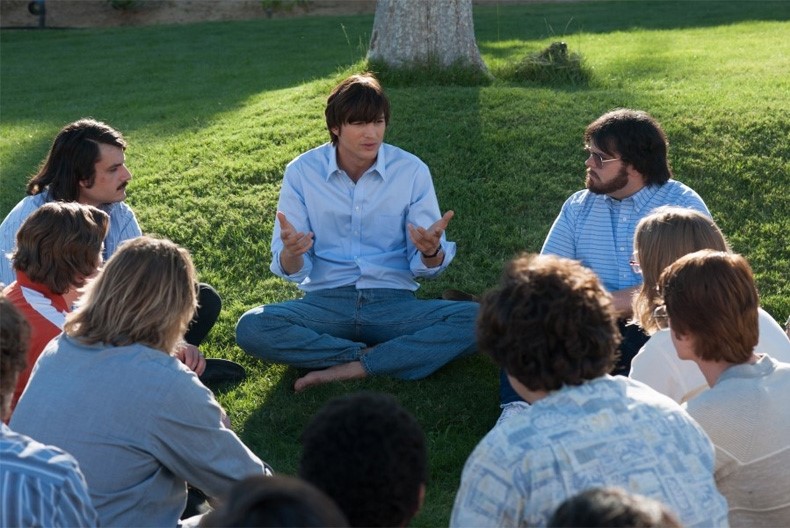
From the Movie “Jobs” in 2013 directed by Joshua Michael Stern casting Ashton Kutcher
3. “I hope I can put transcendence into a product.”
Jobs succeeded to have external achievements through the journey towards inner completion.
“Let’s impact the universe! Let’s make a masterpiece to shake up the universe!”
Jobs said that when he started the ‘Lisa’ project. After the ‘Lisa’ project was the ‘Macintosh’ project where he continuously talks about the universe.
“We are here to leave a trace in the universe.”
Experiencing that the universe and me are not separated into two but connected as oneness. In other words, to see not two different ones but the oneness is Zen. The enlightenment of me and other beings are connected. The creation for not only the self but also the bigger self (the self that includes others) starts from this enlightenment.
After he enlightened, making a profit was not his life purpose. Steve Jobs said the following:
“All my passion was in developing a lasting company where people get filled with motivation and make great products. Everything else is secondary.”
“We use our talent to express the deep emotion and show the gratitude towards all contributions from the past. That is my motivation.”
He wanted to make the best products, and with them he wanted all the people to further improve. He believed himself as an artist and that good artists and good engineers are one in the same. Both professions have the desire to express themselves. He wanted the engineers to not just simply show skills but to put spirit into the product.
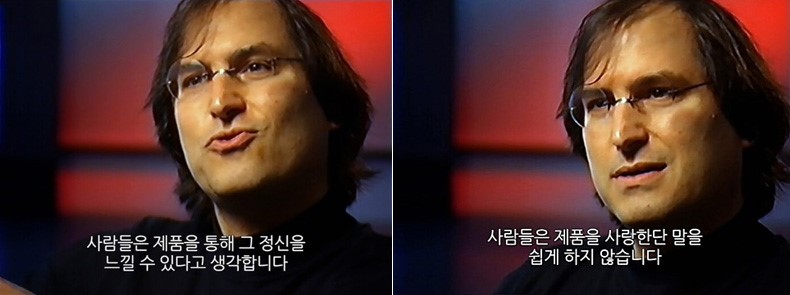
Steve Jobs at The Lost Interview
Left : I think people can feel that spirit through the product.
Right : People do not say easily that they love the product.
“People who have used a Macintosh, they really love it. You don’t hear that people love their products that often, right? But there is something in the Macintosh, something awesome. So I don’t think that my coworkers, who are the best in what they do, did this job simply because they wanted to do computer stuff. The reason they do this is because the computer is a means. It was the best means to express their emotions. The emotions which they want to share with others.”
_ From <Steve Jobs: The Lost Interview> in 1995.
Jobs thought the reason that Apple won the sympathy is because “the deep humanity is running through” their innovation. And the core of that humanity is insight from meditation.
The insight is a gift which is given to people who look inside themselves earnestly. The reason that he fell into Zen meditation was to get the original wisdom that you experience intuitively which you can get through concentration. “Who Am I? How do I live my life?” It was his journey to find the answers. Through this journey towards inner completion, he made all those remarkable external achievements.

* References from
<Steve Jobs> by Walter Isaacson
<Steve Jobs iMind> by Kim, Bum Jin
<Insanely Simple> by Ken Segall
Source: www.meditationlife.org





